
Prepare Now!
Published July 2020

Editor’s Note: Communities must come together to prepare for disasters while they protect life and health during this pandemic. With most residents maintaining social distancing, this season will be unlike anything Florida’s condominium and homeowner associations have had to prepare for. The best practice tips in this article will help CAMs and boards of directors to get their association and residents ready.
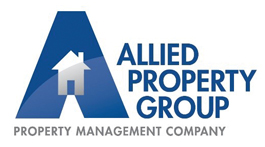 Emergency Plans
Emergency Plans
By Ana Rivero
Imagine waking up in the middle of the night to a phone call that there has been an explosion in your building! A call like this is a manager’s worst nightmare, but all too often it is reality. The only way one can properly address an emergency is by being prepared and having an emergency plan in place. A well-written emergency plan provides instructions as to what to do and must be specific to your community. It not only addresses a hurricane, which is the most common emergency faced by associations in Florida, but it should also address what to do in case of a fire, a plumbing leak, or other type of emergency that can occur in your community.
An emergency plan is no good if it is hidden away collecting dust in a closet. It must be reviewed regularly with staff to ensure that everyone is aware of their role should an emergency happen. Chief engineers, maintenance personnel, security, and the manager all have an important role to play in an emergency. Their knowledge can not just save further damage to property; it can also save lives.
Allied Property Group Inc. and its experienced staff can not only assist you in drawing up an emergency plan for your community but also get you through that tough time. Call us today for more information on how Allied Property Group Inc. can help your community. Now servicing Southwest Florida. Allied Property Group, Inc. has locations at
- 12350 SW 132 Court, Suite 114, Miami, Florida 33186, (305) 232-1579
- 8359 Beacon Blvd., Suite 310, Ft. Myers, Florida, (239) 241-6499
 Disaster Preparedness Starts with Your Tech Stack
Disaster Preparedness Starts with Your Tech Stack
By Beth Gilbert
It’s both critical and challenging to keep your operations moving in times of disruption, but having your business on a solid tech foundation can be your saving grace. Here are three ways to prepare using your tech stack:
- Leverage the Cloud: Avoid the possibility of hardware failures, damaged servers, and destroyed data by embracing cloud-based technology. Cloud-based software ensures that your data is safe and secure and available everywhere on any device.
- Establish Remote Plans:Even if your standard policies require personnel to work in the office, ensure that your software has the capabilities to allow your team to effectively work remotely, if it becomes necessary.
- Visibility into the Same Data:In times of uncertainty, you want to have a pulse on your business at all times. Utilize technology that provides instant access to real-time data from anywhere, allowing you to work as if you were in the office.
For more information on AppFolio, call (866) 648-1536 or visit appfolio.com/associations.
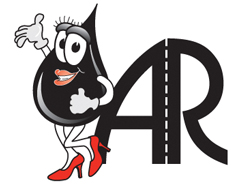 Fix Your Potholes
Fix Your Potholes
By Connie Lorenz
With the hurricane season upon us, now is a great time to fix any potholes or open areas of pavement in your community. Potholes not only expose your sub-base to water intrusion and further damage but also expose your residents to unnecessary areas of concern.
We are already in a rush during hurricane season trying to get to and from places, but there is nothing worse than ending up with a flat tire because of a high impact with your vehicle in a pothole that wasn’t nearly as big as it was this past weekend!
Water standing in a pothole continues to pull out the sub-base from the surrounding areas of pavement that might not have opened up yet. The constant traffic driving through the water forces it to wash out the sub-base material, causing the hole to get larger and larger with each car that passes over. Remember, preventive maintenance is far more cost effective then crisis management!
For more information on Asphalt Restoration Technology Systems, call (800) 254-4732 or visit AsphaltNews.com.
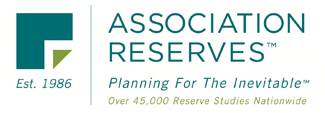 Prior to Hurricane Season, Prepare
Prior to Hurricane Season, Prepare
By Will Simons, RS, EBP
Prior to hurricane season, make sure that all emergency generators, fire alarm systems, and other life-safety components are functional. Keep spare parts on hand if possible, and make it clear who will be responsible for maintaining vital equipment. When a storm hits, you will have to rely on these systems to perform, so make sure you won’t be caught unaware. Don’t put off preventive maintenance, and be sure to test your equipment regularly. Educate residents on what is expected to work on generator power and what they might have to live without, so everyone can prepare accordingly. From a financial point of view, it’s very wise to obtain an emergency line of credit now so that if you do have some unforeseen clean up or insurance deductible costs, you won’t have to get in line with hundreds (or thousands) of other communities.
Will Simons, RS, EBP, is a credentialed reserve specialist and President of the Florida regional office of Association Reserves, a national provider of reserve study services. For more information, visit www.ReserveStudy.com.
[adrotate group=”1″]
 Is Your Key Fob Security Ready for an Unplanned Event?
Is Your Key Fob Security Ready for an Unplanned Event?
By Brad Higdon
In the event of a power failure or power surge, will your access control system function? Will your doors remain locked? Do your doors have magnets that rely on power? Your main access control system is the approving authority for allowing access to your facility and may not be functioning during a power loss. During the installation of many access control systems, a secondary power source may not be sufficient for long-term outages. A secondary means of access is strongly recommended (a key or stand-alone electronic lock.) All equipment, including PC and access control software, should be tied into a generator circuit, or provide additional battery backup capacity to sustain a typical power outage in your area.
Many communities rely on access control as a large part of their security envelope. Any interruptions in this protection may make the community vulnerable for an indeterminate amount of time. As a provider of many access control systems, I strongly suggest purchasing spare parts for your system, including peripherals, backup computer, main control boards, and power supplies. This proactive approach may be beneficial in many scenarios, including equipment obsolescence, unexpected repairs, and disasters.
For more information on Bass United, call (954) 785-7800 or visit www.bassunited.com.
 Disaster Planning Beyond Hurricanes
Disaster Planning Beyond Hurricanes
By Anna Cherubin
Florida associations are accustomed to preparing for hurricanes, but disaster plans should also account for other catastrophic events where there is often less advance warning, such as tornadoes or even active-shooter scenarios. Relying on outside crisis experts for guidance is crucial to ensure that your association is prepared to handle an unexpected and dangerous situation, and boards and managers can work with law enforcement, the fire department, or security consultants to establish a plan specifically tailored to the characteristics of the buildings and even the demographics of the community. Regardless of the emergency, communication is key, and disaster plans should therefore regularly be distributed or posted on the website. The plan should include information regarding evacuation routes or procedures for sheltering in place; information on alarms and fire protection equipment; shut-off locations for water, gas, and electric utilities; and phone numbers of potential service providers and other professionals the residents might need in the event of a crisis.
For more information, visit beckerlawyers.com.
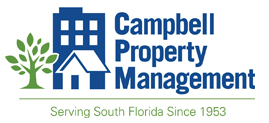 Is Your Association Ready for a Hurricane?
Is Your Association Ready for a Hurricane?
By Dan Tiernan, COO
Being fully prepared for hurricane season is not a simple task. As we are a month into the season, you need to doublecheck and make sure that your community is fully prepared.
- Do you have a written PLAN? This is where it all starts. Many of us are familiar with the saying, “If we fail to plan, we plan to fail.”
- Have you PREPARED for the season? Once you have the plan, you must execute it. Trim all trees, check each generator (fuel included), verify supplies, and inspect each drainage system for any potential blocks. Don’t forget to make sure all key vendors are prepared, too.
- Do you know what to do immediately BEFORE the storm? What items need to be secured and who needs to do it? Do hurricane shutters need to be deployed? How do you communicate this information with residents?
- How do you operate DURING the storm? What are the responsibilities of the board, staff, and owners during the storm? What should people expect? Should owners be advised on what foods and/or supplies they should stock up on?
- What do you do AFTER the storm? How do you contact your key vendors in case of issues? Have you established a response/priority level? How, when, and what do you communicate with owners?
Dan Tiernan is COO with Campbell Property Management. For more information, call (954) 427-8770 or visit www.CampbellMGT.com.
 Hurricanes Are a Fact of Life
Hurricanes Are a Fact of Life
By Ed Williams, RRC
Strong storms and hurricanes are a fact of life in Florida. Just last week, strong thunderstorms in Martin and Palm Beach Counties had winds of 60 to 70 miles an hour. Hail was included as well. If you have had a new roof installed in the last few years, it was probably designed for winds well over 100 miles an hour, depending on where you are in the state. High winds try to lift the roof and will find its weak point. High winds can also bring flying debris, which can puncture the roof. Then there is hail, and it can also puncture the roof.
This is the reason that the roof should be inspected after any significant weather event. A small puncture or a small area that is lifted will quickly grow into much larger problems. Remember, just because you don’t have a leak, it doesn’t mean that your roof is not damaged.
For more information, visit EdWilliamsRegisteredRoofConsultant.com or call (772) 335-5832.
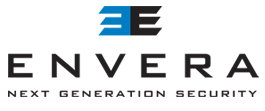 Prepare Points of Entry
Prepare Points of Entry
By Brie Shouppe
In any disaster safety is top of mind for our families and ourselves. Associations have the added responsibility of addressing an entire community’s security. Preparation is key, especially when it comes to points of entry.
Gated properties should know that natural disasters frequently affect them. Standard code requires most gates to “fail open” if power is lost. Prior to this happening, communities can consider locking the gates. In doing so they can secure the gates to prevent further damage in a strong storm while easing traffic in the event of an evacuation.
Other points of access may also be impacted, and you should talk with your access control provider to find out if amenities or assets will lock when the power goes out. Just like gates, it may be helpful to take action ahead of time and lock access to prevent unauthorized use of an area for a period of time.
For more information on Envera Systems, call (855) 380-1274 or visit www.EnveraSystems.com.
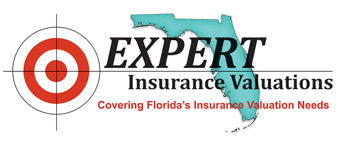 Preparing for the Repercussions
Preparing for the Repercussions
By Anastasia and David Kolodzik
In this time of uncertainty and new social protocol, associations are faced with not only the onset of preparing for storm season but also the possibility of delinquencies in assessments from unemployed owners and possible insurance claims from hurricanes with cleanup costs. There are three ways you can tailor your reserve study to reduce the impact of these unforeseen tragedies: include an insurance deductible, a hurricane cleanup allowance, and a contingency percentage for high-ticket components (such as paint, roof, and pavement). The insurance deductible can assist owners in the event of a disaster and reduce possible special assessments. This can go hand in hand with an allowance for hurricane cleanup, which is usually not covered under an association’s insurance policy. Contingency percentages on major components will “cushion” the delinquencies brought on by unemployed owners and foreclosures. As we move forward in the wake of the beginning of this year, proactive funding is a height of necessity.
For more information, call (866) 480-8236 or visit www.flinsurancevaluations.com.
 Wellness Checks
Wellness Checks
By Betsy Barbieux, CAM, CFCAM, CMCA
Though not part of our job description as a CAM, being concerned about our owners’ welfare is common.
Disasters (and pandemics) may cause mental health issues. If you are concerned about an owner, it may be time to contact the police for a wellness/welfare check. Using the non-emergency telephone number, make a call and request the police to stop by the owner’s house to make sure the owner is okay. No court order is needed. Here are some reasons you might make the call:
- Newspapers in the driveway have accumulated
- Mail is not being picked up
- Normal routines like walking, swimming, and time-consuming visits to your office aren’t happening
- Neighbors comment about not seeing the owner
- The car has been stationary for days
- The dog has not been out for routine walks
- The owner has special needs or health issues
Betsy Barbieux, CAM, CFCAM, CMCA, Professional Development Coach, Florida CAM Colleges LLC, Betsy@FloridaCAMSchools.com, (352) 326-8365, www.FloridaCAMSchools.com, YouTube Channel –www.YouTube.com/c/cammatters.
 Unexpected Consequence of Storm Damage
Unexpected Consequence of Storm Damage
By John Greenwood
The frequent storms and increasingly frequent hurricanes in Florida can cause widespread damage to buildings (particularly roofs). Among the other problems this damage presents to home owners and property managers is one that very few people would immediately consider—bat colony infestation.
Florida bats are all of the suborder of the species known as microchiroptera. They are micro-bats. For example, the Mexican/Brazilian free-tailed bat (the most common and numerous of the species) measures only about 1 ½-inches in length and weighs less than half an ounce. Originally, these bats inhabited crevices and caves in the Brazilian rain forest, but in Florida—where we have no caves—they have adapted to living in our buildings by entering small gaps in the structure.
Resulting damage from a storm can present these animals with many more opportunities to gain entry to our homes. If you suspect you may have a bat problem following the storm, call us for a free inspection.
John Greenwood is the technical consultant for Friends of Bats. Call 1-888-758-BATS (2287), email fob@friendsofbats.com, or visit www.friendsofbats.com.
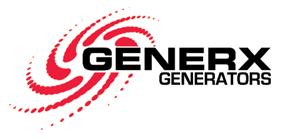 Are You Fully Testing Your Backup Generation System?
Are You Fully Testing Your Backup Generation System?
By John Macgowan
“Our generator runs a self-test every Monday. So, if that little green light is lit and there’s no alarm, then everything is ready to respond to an emergency, correct?” Not necessarily.
The weekly self-test ensures that the generator will start when required; however, it does not test the operation of the automatic transfer switch.
The automatic transfer switch (ATS) is the brains for the system and decides which source of power is connected to the building. By continuously monitoring the utility voltage, the ATS sends a command to start the generator if the utility fails. Once the ATS sees the generator online, it transfers from the (dead) utility and connects the generator to the building—restoring power.
Preparation for hurricane season should include testing the entire backup generation system, including the ATS, to ensure everything responds correctly in an electrical outage.
For more information, call (813) 814-5900 or visit www.FixMyGen.com.
 Don’t Let the Threat of Hurricane Season Sneak Up on Your Association
Don’t Let the Threat of Hurricane Season Sneak Up on Your Association
By Katrina Sosa
While the global pandemic caused by COVID-19 has already forced community associations and their management companies to kick it into overdrive with emergency planning and preparedness, the arrival of hurricane season now presents additional dangers to the safety and operations of community associations. Unlike the unprecedented issues caused by COVID-19, community associations face hurricane season every year and should revisit their hurricane policies and procedures to ensure that they are adequately prepared for the same this year. Community associations should, at the bare minimum, perform the following:
- Consult with your insurance representative to review the association’s insurance policy, limits and deductibles, and any coverage gaps.
- Confirm that management has clear procedures for operating the property before, during, and after a storm.
- Confirm that management has implemented a system for communicating storm updates and preparedness requirements with residents before, during, and after a storm.
Of course, this is just a starting point. Please consult with your legal representation to implement a complete hurricane preparedness program.
For more information, call (305) 379-2400 or visit www.haber.law.
 Re-opening After COVID-19
Re-opening After COVID-19
By Kaylee Tuck, Esq.
When Governor DeSantis declared COVID-19 a public health emergency on March 9, 2020, many community associations took action in the interest of protecting the health, safety, and welfare of their residents. Common areas were closed, amenities were suspended, and operations came to a halt. Now the question is, how do we safely open back up?
- Encourage social distancing. Social distancing is not normal for residents who regularly go to the pool and have barbeques together. Use signage in common areas to remind residents to practice social distancing.
- Monitor areas where cross-contamination can occur. Be cognizant of where cross-contamination can occur and establish specific guidelines for use. For example, shared barbeque grills in common areas may need to remain closed for a longer period of time.
- Establish sanitation protocols. Have a system in place that makes residents feel safe, such as appointment-only office visits and sanitizing common areas regularly.
Henderson, Franklin, Starnes & Holt, P.A.—Fort Myers | Bonita Springs | Naples—www.henlaw.com • www.legalscoopswflre.com—(239) 344-1100
 Bridge the Gap Between A Budget on Paper and Reality
Bridge the Gap Between A Budget on Paper and Reality
By Anita Tynski and Karen Shawdee
A sound, well-planned, and success-fully managed budget and dues collection process are key to the survival and ongoing maintenance of any association. As seen during the economic downturn and now during the COVID-19 crisis, there can be a significant disparity between a budget and the actual collection of assessments/dues and plans for unforeseen expenses. It is important to work with management companies and board members across the state to help bridge the gap between a budget on paper and reality. To this end, clients are provided with tools to collect dues more efficiently and effectively, offered secure solutions for excess funds, and provided loan options for minor repairs and major renovations. By forging strong relationships with attorneys, CPAs, and contractors, an extra level of advice and care is provided. Member FDIC. Equal Housing Lender.
For more information on IBERIABANK, visit www.iberiabank.com.
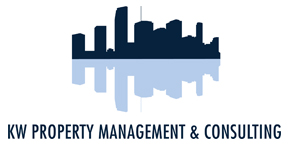 Applying COVID-19 Lessons to Overall Disaster Preparedness
Applying COVID-19 Lessons to Overall Disaster Preparedness
By Katalina Cruz
Florida community associations and property managers have dealt with an unprecedented emergency situation this year as the COVID-19 outbreak forced everyone to quickly implement new best practices to keep residents and staff healthy and safe. Measures taken related to the pandemic are important to consider now for hurricane season and general disaster planning and preparation, including the following:
- Constantly communicating updates to residents and staff about plans and protocol.
- Cross-training employees to serve a variety of roles during an emergency; managers and staff members expanding skill sets and taking on additional responsibilities depending on immediate needs also applies to broader disaster preparation.
- Encouraging associations to maintain robust reserves with at least two months of community capital available.
- Planning even further ahead than usual and having a reserve of supplies in place, due to the first aid and sanitation supply shortage in several markets.
Navigating this crisis offers a chance to learn and develop new strategies to deliver exceptional service in the face of major obstacles.
For more information on KW PROPERTY MANAGEMENT & CONSULTING, call (305) 476-9188, email kcruz@kwpmc.com or visit www.kwpmc.com.
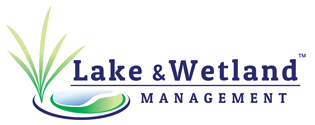 Maintaining Stormwater Systems Key for Disaster Preparedness Plan
Maintaining Stormwater Systems Key for Disaster Preparedness Plan
By Chad Bass, General Manager
When it comes to safeguarding Florida communities, it frequently involves monitoring situations that aren’t in plain sight.
This is the case with stormwater systems, an interconnected network of ponds, pipes, and overflow structures that prevent communities from flooding. These systems are responsible for conveying runoff away from homes, streets, and parking lots. If these highways for water become impaired with grass clippings, sediment, or algae, neighborhoods and homes are likely to flood. Community associations should continually monitor their stormwater systems to prevent catastrophic consequences during hurricane season. Ensuring these structures are clean should be part of an ongoing stormwater system management program. Following are some signs that the drainage systems aren’t working properly:
- Water staying on streets longer than usual following heavy rains
- Slow water flow into stormwater drains
- Water higher than usual in lakes, ponds, or canals
- Holes or depressions forming near ponds banks or stormwater structures
The bottom line is that water will always go somewhere. If your stormwater system is not properly maintained and serviced, the result could be devastating flooding or shoreline erosion.
Founded in 1992, Lake and Wetland Management is a full-service environmental resource management company with 14 offices throughout Florida. www.lakeandwetland.com.
 It Only Takes One Bad One!
It Only Takes One Bad One!
By Daniel Arce, CEO, FDIS
There are many different types of doors in every building. The most important and critical are known as fire and exit doors. . .these doors are designed to protect the occupants and property in the event of a fire, but it only takes one “bad one” to enable a small fire to become an inferno!
Fire doors have several important jobs besides being a regular door.
- To contain a small fire to the area of ignition.
- To protect and provide a “safe path” for occupants to evacuate.
- To allow first responders the same clear path to get in to help!
Fire doors must be maintained and operated as designed. To insure this, the fire code requires “an annual fire door inspection of all the fire doors.” Unfortunately, many building operators are unaware of or just ignore this law; some think it’s included in their annual fire inspection, but it’s not! Not having your doors inspected and tested puts your building and its occupants at risk. For the sake of everyone and to avoid a possible citation or insurance problem, ask about a fire door inspection. It costs less than you think, and you will feel better if you have it done. Always remember, things happen!
For help or more information, call Dan Arce at (786) 239-8563 or email dan@nationalfiredoor.com. National Firedoor LLC in Miami, FL, is “American’s fastest growing fire door inspection company.” The company can be reached at (305) 233-1477.
 Emergency Funds—How Your Association Can Be Financially Prepared
Emergency Funds—How Your Association Can Be Financially Prepared
By Molly Hime, SVP & Director of Popular Association Banking
When unexpected repairs are needed or weather-related disasters strike a community, often associations are left trying to fund projects that require immediate attention. Comm-unity associations require different loan options than individual homeowners do for these circumstances. Many associations do not set aside money for such repairs (replacement reserves) or funds for emergencies; they simply pay for the situations as they arise. Often these repair costs are too large for associations to pass on to unit owners in an upfront special assessment.
Your association banker can provide alternatives to allow your association to make the repair today while giving the unit owners breathing room to make payments over a 10- or 15-year period, without depleting their individual funds.
Associations should develop a comprehensive plan in case of a disaster, including response efforts and a financial plan. Associations should contact their bankers when developing this plan and inquire about a contingency line of credit. This would ensure that, if a disaster occurred, a loan facility would already exist for the association to utilize.
For more information, please contact us at (800) 233-7164, PABLoanSupport@popular.com, or www.popularassociationbanking.com.
 Making Sure Your Community Is Prepared for the Unexpected
Making Sure Your Community Is Prepared for the Unexpected
By Mariann Gerwig, CGC, HI, CFCAM
Just how can you accomplish this if the definition of unexpected is “something that was not planned or anticipated”? The development of an emergency team or committee in charge of creating procedures that can easily and quickly be revised to fit many situations may be an attainable goal.
Some important steps that can be taken:
- Most local, state, and federal municipalities offer free classes to their residents to help them to be prepared and protected during emergencies that will directly impact the ability to recover.
- Have annual meetings that include building management, employees, tenants, and guests on how to be organized and resilient in the face of disaster. Have written copies to give to all the attendees.
- Review evacuation procedures and implement drills and help ensure success every time.
- Utilize mass notification systems to create concise messaging to all necessary parties.
- Maintain current building conditions and surveys that will help if there is a need to submit an insurance claim.
- Create a pre-approved vendor list with a clause that your building will be included on a priority list for repairs by having a current agreement with each vendor.
- Have a proper means of backing up all electronic records regularly. Paper records should be kept in weatherproof and fireproof cabinets.
For more information on Promar Building Services LLC, email Mgerwig@Promarbuilding.com or visit promarbuilding.com.
 Disaster Preparedness—More Important than Ever
Disaster Preparedness—More Important than Ever
By Annette Byrd, CMCA, PCAM; Sr. VP RealManage Florida
While we find ourselves in an already impactful major health disaster, we must continue our diligence to prepare for what may come in the predicted above-average storm season. To ensure readiness, advanced planning is critical to overcoming disaster quickly and smoothly.
Designate volunteer emergency coordinators and establish and document a disaster plan.
- Gather resident/employee emergency contacts and advanced evacuation plans.
- Create preparation checklists for residents, including supplies to stock, plans for pets, and home access.
- Select service providers in advance and create a response protocol and checklist for initial access and mitigation.
- Outline an agreement with a restoration vendor for both immediate and overall repair needs.
- Provide documents to all service providers to include insurance, management, building components, recreational facilities, grounds, amenities, security, etc.
- Prepare a duplicate asset inventory, building plans, maps, plats, and access keys to be housed in an off-site location for immediate access.
Establish a system for mass communication with residents leveraging all communication types— phone, text messaging, and email—and outline planned response protocol in advance. Test communication in advance and communicate frequently.
For more information, visit realmanage.com.
 Chute for Disaster Preparedness
Chute for Disaster Preparedness
By Joanna Ribner
When a storm threatens, there is an overwhelming list of precautions to be taken on any property. The good news is the trash chute is low maintenance!
There is very little that needs to be done, or indeed can be done, to protect your chute during a hurricane. It is an interior feature, so it is protected by the walls around it.
If the chute doors are on an exterior catwalk, consider covering them with plywood to protect them from flying debris.
Secure loose items in the trash room. Make sure the fire damper door has a fusible link on it so in case something is blown over and ignites, the door will protect the building.
After the storm passes, go up on the roof and see if the vent cap is secure or has blown away. Typically, they do not survive hurricane force winds and will need to be replaced.
For more information, call (866) 475-9191 or visit www.SouthernChute.com.
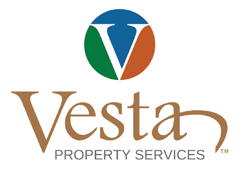 Staying Connected When Disaster Strikes
Staying Connected When Disaster Strikes
By Kelly McNeice
As many know all too well, disaster can strike at any moment. Preparation is essential to keeping your community safe during an emergency, and one of the most important aspects of successfully navigating a difficult and potentially dangerous scenario is communication. A great way to ensure your community will be prepared is sharing your emergency plan with residents, employees, and vendors. This plan will let everyone know what their role is in keeping the community safe.
Make sure, well in advance, that your residents are informed on what protocol local emergency management teams recommend in the event of flooding, evacuation, or even a shelter in place order. Sharing critical information such as storm procedures, disaster relief information, and local emergency numbers with your community is critical. This can be easily achieved with a message board posted outside the main office and common areas or distribution via informational booklets through the mail. You can even create a brochure with pertinent information to distribute to new residents on move-in day.
Remember to communicate with staff, residents, and vendors before, during, and after any kind of catastrophe so they know what your expectations and plans are. Knowing how to keep your community safe and calm with constant communication will make any situation you might have to face together less frightening.
For more information on Vesta Property Services, visit VestaPropertyServices.com.



